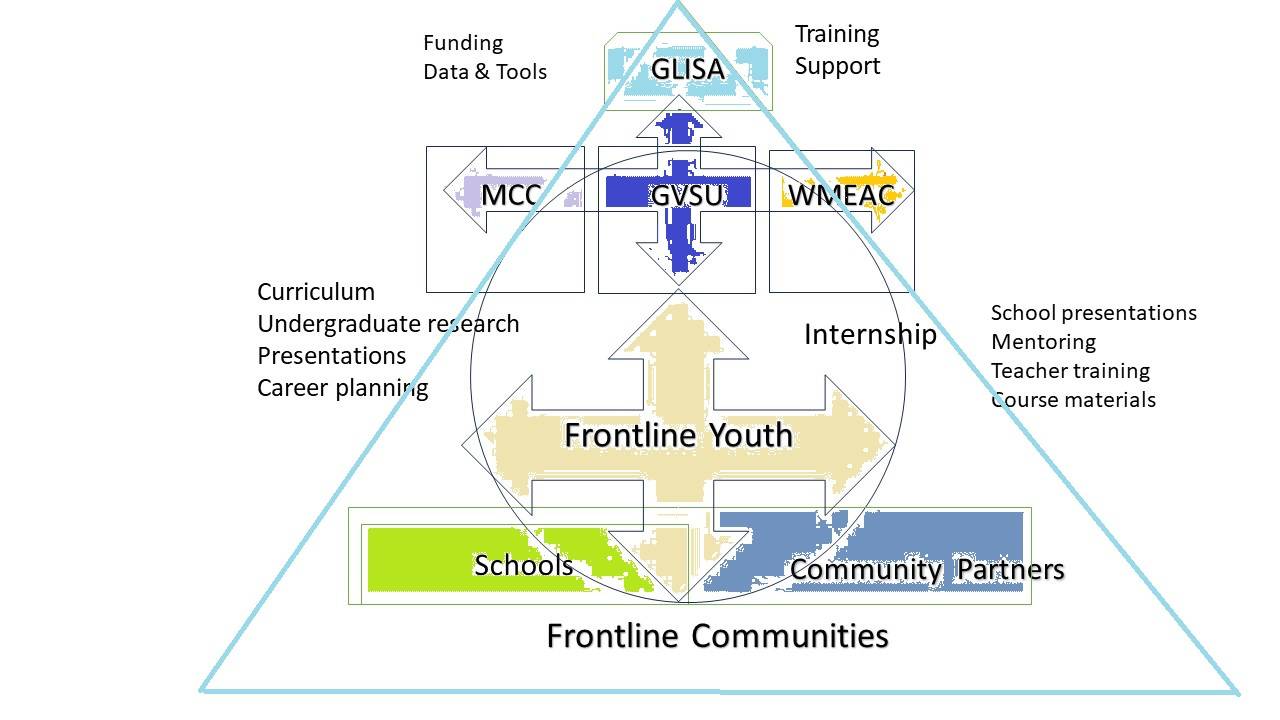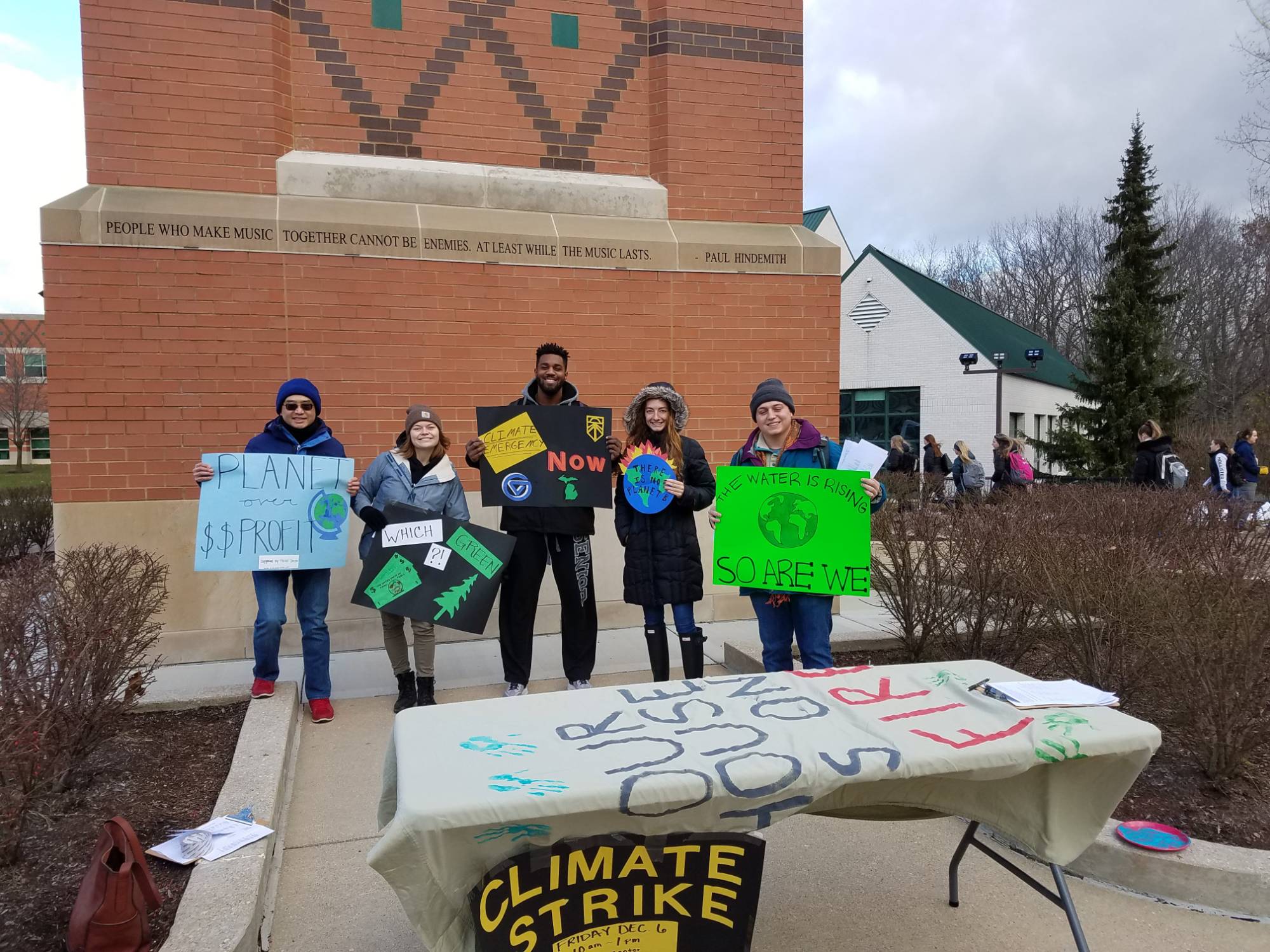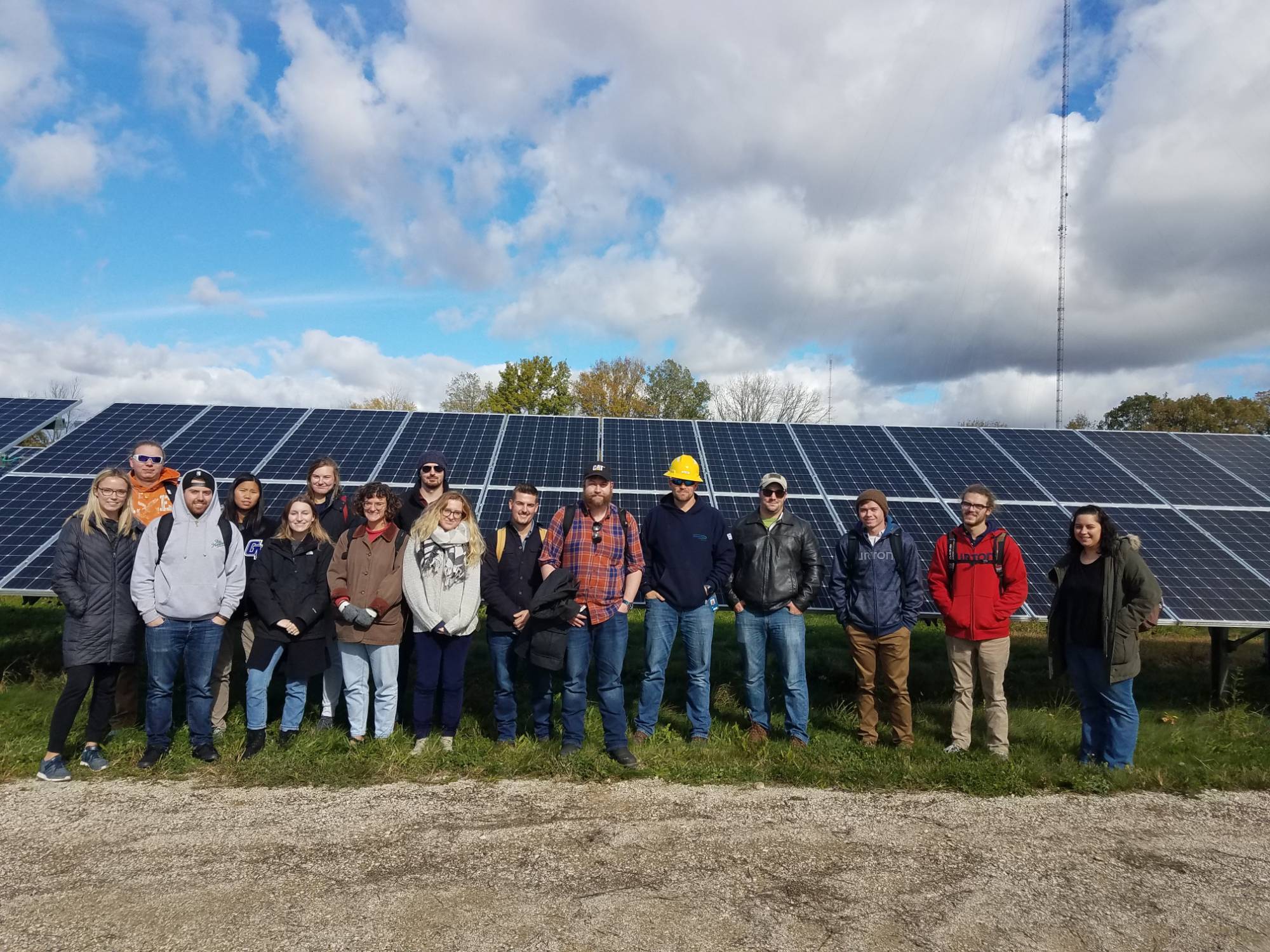About GLISA-ELF
Elevating Youth Leadership And Peer-Learning To Support Climate Adaptation In West Michigan Lakeshore Frontline Communities (ELF)

GLISA ELF
GLISA ELF is a 2-year project focusing on youth leadership and peer-learning to support climate adaptation in West Michigan lakeshore frontline communities. It is supported by and is a part of the NOAA GLISA Program.
Climate change poses an urgent threat to future generations and young people are among the most vulnerable groups to negative impacts of climate change, facing immediate and lifelong impacts on their physical and mental health. Youth vulnerability to climate change is especially high in frontline communities, due to cascading effects of non-climatic challenges related to racism, poverty, housing and transportation disparities, food insecurity, and community safety issues. Educating, supporting, and engaging young people is an essential long-term climate change adaptation strategy. Universities, community colleges, and schools are poised to play a prominent role in the GLISA Adaptive Boundary Chain Model because they link climate science to local communities through education, youth support, and local-scale co-production and application of scientific knowledge.
GLISA ELF will develop a multi-tier community-based climate change education system fostering support, engagement, and empowerment of high school and college students. Geographically, the project will focus on Muskegon County, but the proposed collaborative model could be transferable and relevant to other Great Lakes communities facing similar issues. Focusing on climate education and empowerment of high-school and community college students, the proposed project has two interrelated and overlapping goals: A) To develop a transdisciplinary climate change curriculum, integrating climate data and geospatial technologies, including GLISA online tools and datasets, with peer-to-peer learning, community-based research, and mentoring. B) To design and build a system of educational support for youth through developing mentoring and experiential learning projects for high-school students, school and community presentations, and materials and training for high-school teachers.
"Climate Sisu" Screenings in Muskegon, November 14, 2024
Join us for the Muskegon premier of the documentary "Climate Sisu: The Stories of Climate Resilience from Northern Michigan" and a conversation with its filmmaker, Elena Lioubimtseva, GVSU Professor of Geography and Sustainable Planning and the CCESN Co-founder,
November 14 at 6 PM at Muskegon Community College.
Location: Room 2323-2331, MCC Main Campus. 221 Quarterline Rd, Muskegon, MI 49442
Doors open at 6 PM, Presentation at 6:15 PM, Screening at 7 PM.

[1553106142].jpg)

Project Team
Elena Lioubimtseva, Lead Investigator, GVSU Geography and Sustainable Planning Department, Professor
Diane Miller, GVSU Regional Math and Science Center, Business and Community Outreach Coordinator
Kin Ma, GVSU Geography and Sustainable Planning Department, Associate Professor
Rebecca Lubbers, GVSU Geography and Sustainable Planning Department, Research Assistant
Rylie Dietz, GVSU Environmental and Sustainability Studies Program, Research Assistant
Diana Casey, Muskegon Community College Life Science Department, Instructor (Retired)
Eric Carballido, Muskegon Community College Life Science Department, Instructor
Tanya Cabala, West Michigan Environmental Action Council, Lakeshore Outreach Organizer
